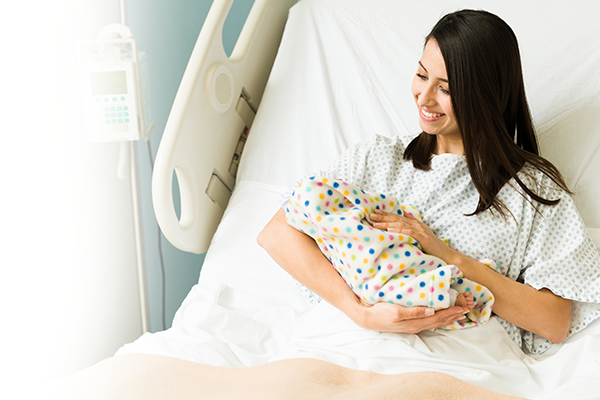Renal colic in pregnancy occurs when the flow of urine through the urinary tract is blocked. Its most common cause is compression of the kidneys by the enlarging uterus or the accumulation of deposits in the kidneys, possibly in the urinary tract. The characteristic symptom of renal colic is severe pain in the lower back.
Kidney colic in pregnancy itself is not dangerous to the developing baby in utero. On the other hand, its complications are dangerous, so it is necessary to properly treat and prevent attacks of renal colic. Prevention includes limiting salt intake, avoiding fatty and fried foods, as well as adequate hydration – a minimum of 2 liters of water per day.
What are the causes of renal colic in pregnancy?
Renal colic in pregnancy is the term for the discomfort that occurs when the flow of urine through the urinary tract becomes blocked. Such a situation causes the pressure to increase, the worming movements are intensified and the ureteral muscle contraction occurs. The condition usually appears in the second or third trimester of pregnancy.
The most common cause of renal colic in pregnancy is kidney stones, a condition characterized by the formation of deposits in the urinary tract (kidney stones). They are made up of chemical compounds that are found in urine. This is promoted by stagnant urine, its abnormal reaction, as well as the intake of too little fluid.
A kidney colic attack in pregnancy is caused by the pressure of the enlarged uterus on the urinary tract. Then the symptoms may appear in women who have never had kidney problems before. However, this happens rarely.
Symptoms of renal colic in pregnancy
Symptoms of renal colic in pregnancy are characteristic. First of all, there is a very strong pain localized in the lower back. It can radiate to the groin and perineum. It is described as dull and tearing. The discomfort usually tends to be located on one side of the body. They are strong enough to limit or even prevent daily activities.
In addition to pain, there may be other symptoms of renal colic in pregnancy. They are:
- elevated body temperature,
- Nausea or vomiting,
- chills,
- Painful push on the bladder,
- hematuria,
- significant deterioration in well-being.
How long does a kidney colic attack last in pregnancy?
A kidney colic attack most often occurs suddenly. It can last for several hours and weaken over time. Sometimes the discomfort persists for several days – until the urinary tract is unblocked. In some cases, hospitalization is necessary.
Diagnosis of renal colic in pregnancy
A woman who develops symptoms of renal colic in pregnancy should see a doctor. The condition itself in no way threatens the developing fetus. On the other hand, its complications are dangerous, so it is necessary to perform tests and implement appropriate treatment. The diagnosis of renal colic in pregnancy uses ultrasound (ultrasound). For safety reasons, other techniques (especially those requiring X-rays) are used only in complicated cases.
Treatment of renal colic in pregnancy
Treatment of renal colic in pregnancy involves relieving unpleasant symptoms. The doctor may prescribe diastolic and painkillers, the taking of which will not affect the fetus. Warm compresses on the lumbar region of the spine, adequate hydration, warm baths, and walking are also recommended – movement helps unblock the ureter and prevents urinary stasis.
In most cases, this treatment of renal colic is sufficient, as the deposits are expelled spontaneously. In some cases, hospitalization and insertion of a urethral catheter to facilitate urine drainage is necessary. Stone removal procedures, such as extracorporeal lithotripsy (breaking up deposits with ultrasound waves), are not performed during pregnancy.
See also: Causes of insomnia in early pregnancy
Rate this article:










